The Value of a “No Drama” Politician
In 2020, Keir Starmer took over a Labour Party in turmoil under the leadership of Jeremy Corbyn, a radical socialist who advocated nationalizing parts of the UK economy , was anti-Semitic, and even allowed activists to regularly wave Palestinian flags at party meetings.
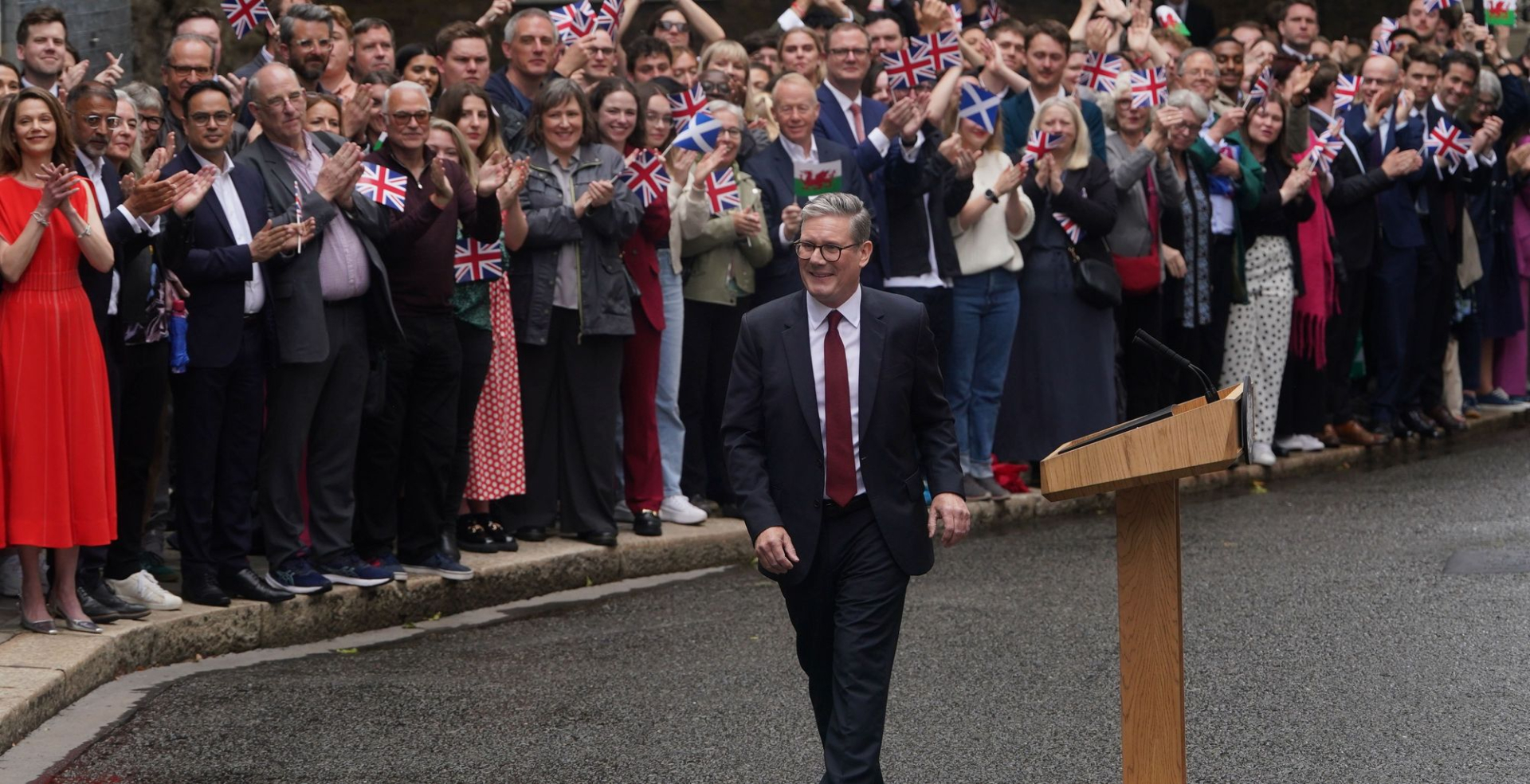
Britain's newly elected Prime Minister Sir Keir Starmer after his speech outside 10 Downing Street following the Labour Party's landslide victory. Photo: Zuma Press
Keir Starmer, a former prosecutor, put an end to all that. He pulled the party into neutrality, banishing anti-Semitic members. And, two years into his tenure, he required Labour members to sing “God Save the King” at the annual general meeting. The only flags in the hall were the Union Jacks.
Now, eight years after the UK voted to leave the European Union and entered an era of post-Brexit political and economic turmoil, British voters have asked the politician known as “No-Drama Starmer” to stabilize the country with his dry competence.
Starmer became British Prime Minister after his Labour Party won one of the largest parliamentary majorities in history, while the Conservative Party's seat count fell to its lowest level in modern history.
The scale of this landslide victory was only slightly smaller than Labour's previous biggest victory in 1997 under Tony Blair, who also ended the Conservatives' long reign by taking his party to the centre, ushering in a 13-year spell in power, the longest Labour Party ever had.
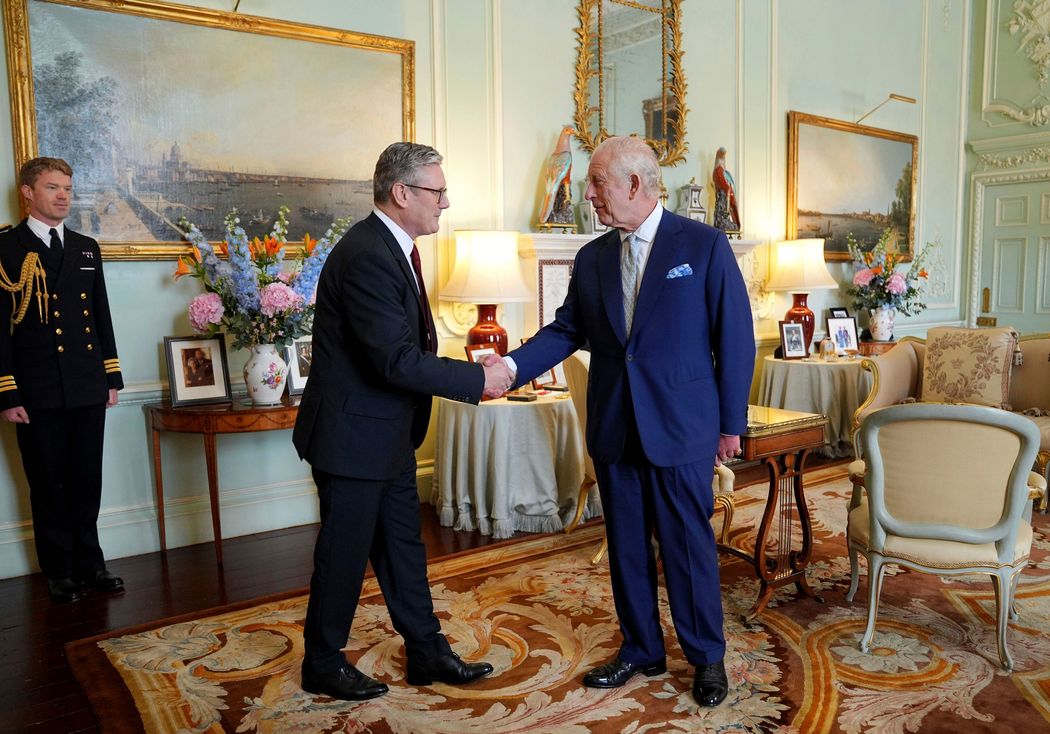
King Charles III of England invited Starmer to become Prime Minister and form a new government on Friday (July 5). Photo: AP
Unlike Blair, however, Starmer lacks charisma, offers no vision of radical change, and is not even popular. Polls regularly show that more voters disapprove of him than approve. Even his most ardent supporters say his victory is largely due to the collapse of the Conservative Party.
But there’s a reason for it. British voters flocked to Starmer as an antidote to post-Brexit chaos. In five months of 2022, the country had three different prime ministers and a financial race on the pound. Former Prime Minister Boris Johnson was even ousted by his own party after multiple scandals, including hosting a party at 10 Downing Street during the pandemic lockdown.
At a time when populist far-right parties are on the rise in Europe, and American politics is dominated by the presence of Donald Trump, Starmer will be a test of whether people can rely on a pragmatic leader instead of indulging in high-sounding rhetoric, empty promises and populism?
“Politics is full of people shouting very loudly about an issue,” Starmer said a few years ago. “But there is a different kind of passion… which is, ‘What is the answer to that issue?’”
Discipline and action
An Oxford law student, Starmer jailed scores of terrorists when he became Britain’s chief prosecutor. But when he listed his greatest achievements in that position, he mentioned transforming the criminal justice system from paper to digital. As leader of the Labour Party, his first act was to overhaul the party’s arcane rules to tighten his control over how policy is set.
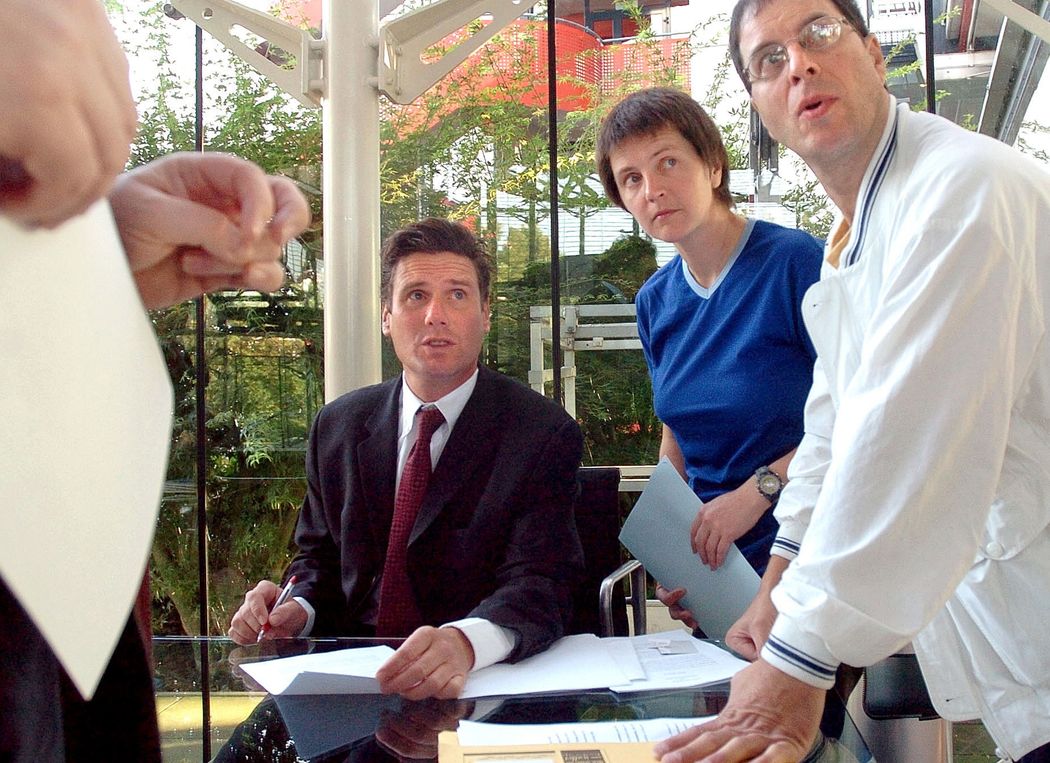
As a human rights lawyer, Starmer (in black suit) has spent nearly a decade defending environmental activists. Photo: AP
Keir Starmer is the antithesis of Boris Johnson, the last leader Britain elected in 2019. The charismatic Johnson is a product of elite private school, sporting blond hair, quoting Latin and painting a sweeping vision of “sun-drenched uplands” under Brexit. Starmer comes from a modest background, wears glasses and neat bangs, has no favorite novels, is a tough speaker and presents himself as someone who can make tough choices in tough times.
Such a figure comes at a time when Britons are impatient for change and fed up with empty promises. The UK economy has grown by an average of just 1.3% since 2016, and real wages have stagnated in recent years. The country has 6.3 million people waiting for treatment on the state-run National Health Service (NHS). Public finances are stretched thin after handing out billions of pounds to the public during the pandemic and the energy crisis caused by the Russia-Ukraine conflict. Prisons are so crowded that criminals can be released early.
Mr Starmer has spent much of the campaign stressing what he will not do: raise taxes broadly or increase spending dramatically, because he believes the UK cannot afford it. His pledges are a five-point plan that includes cutting red tape to build more housing, reducing immigration, creating funds to speed up the construction of green energy infrastructure and making it easier for people to get appointments in the health system.
On foreign policy, Mr. Starmer also expressed the view of previous governments in keeping the US close and supporting Ukraine. He is pro-business and wants to mend relations with Europe but will not reverse Brexit. What needs to be stable, Starmer will stabilize. What needs to be reformed, will be reformed. All based on pragmatism, not to make promises beautiful.
Starmer is not… a politician
Keir Starmer is an oddity in Westminster. He is not known for his eloquence. Robert Hayward, a pollster and Conservative member of the House of Lords, said he had hardly heard of a British politician with so little political experience winning a general election. Yet Starmer entered politics only nine years ago. “Starmer doesn’t know much about the Labour Party. He comes from the outside,” Hayward said.
Interviews with dozens of people who have worked with Starmer paint a picture of a politician who uses meticulous thought to get results. He doesn’t rely on fame to get what he wants. During the election campaign, when a voter asked Starmer why he was so dry, Starmer drew laughter by replying…”thank you!” Those who know Starmer say he can be ruthless and isn’t afraid to abandon allies or reverse deeply ingrained policies.
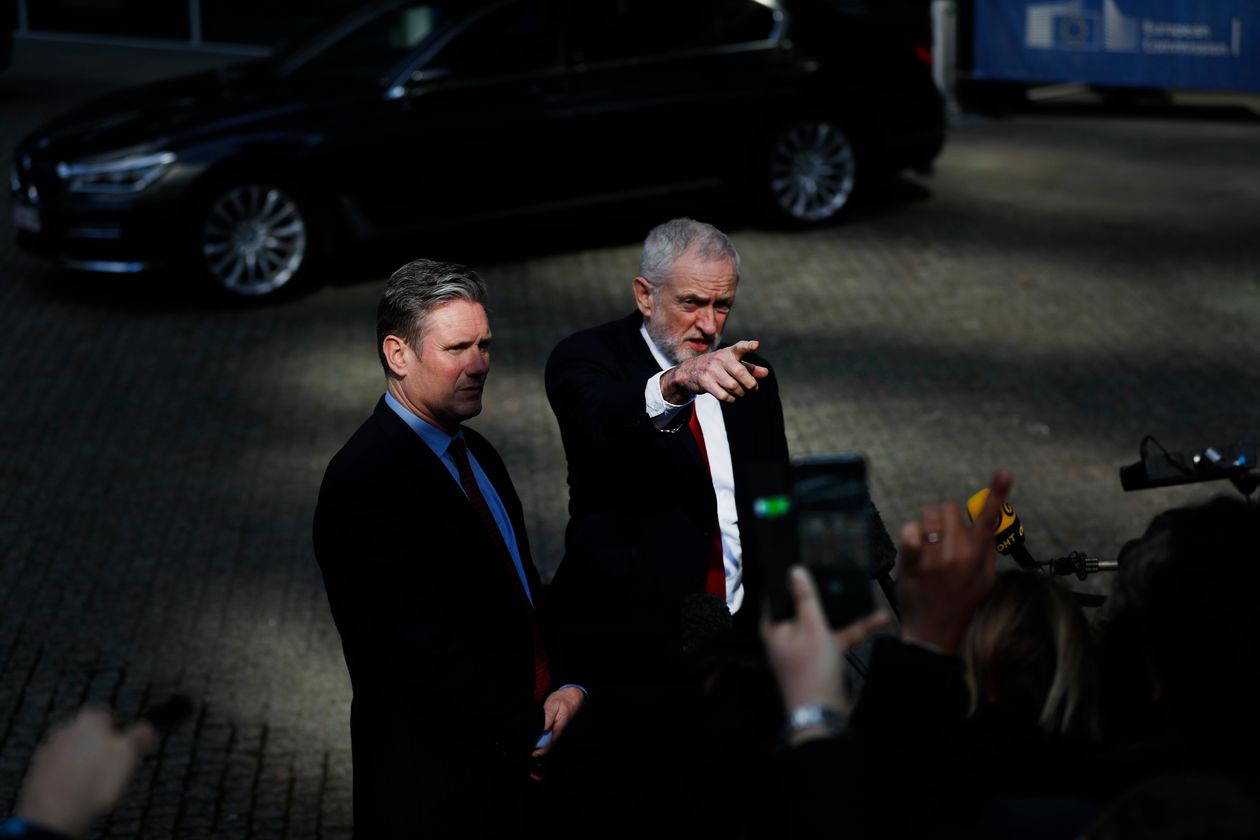
Starmer served under former Labour leader Jeremy Corbyn (right), but later suspended him from the party. Photo: AP
When he ran for the Labour leadership in 2020, he positioned himself as an ally of the left, pledging to nationalize the UK's energy sector and abolish university tuition fees. He also called Corbyn a friend. But within months of becoming Labour leader, Starmer abandoned those policies, suspended Corbyn from the party and embraced Brexit, despite having previously traveled across the UK to campaign against leaving the EU.
In the past year alone, Keir Starmer has scrapped a long-vaunted £28bn-a-year green investment plan and diluted a policy to improve workers’ rights, making him an odious figure for the party’s far left and alienating many traditional Labour voters.
Mr Starmer grew up in modest circumstances just south of London in a place called Oxted, a wealthy suburb and a Conservative Party heartland. His parents named him after the founder of the Labour Party, Keir Hardie. His father was a mechanic and devoted to caring for Mr Starmer’s mother, a former nurse who suffered from a rare form of arthritis that left her struggling to walk. Keir became the first in his family to graduate from university.
After graduating, Keir Starmer embarked on a career as a liberal human rights lawyer, winning acclaim for representing people facing the death penalty in the Caribbean and Africa. He has won several high-profile cases, including one that overturned a mandatory death penalty in Uganda, and worked pro bono for nearly a decade defending two vegetarian activists who McDonald's sued for defamation after distributing leaflets criticizing the company.
In 2008, Starmer became the UK’s Chief Prosecutor, spending nine months visiting all 42 regional offices of the Crown Prosecution Service. At the time, the agency’s budget had been cut by about a third as the Conservative government slashed public spending to shore up the finances. Starmer felt the scale of the cuts threatened to undermine the foundations of the British welfare state created after World War II, so in his 50s, he entered politics as a Labour Party lawmaker.
And the rest is what we see. Cool and rational, Starmer has dramatically overhauled the party, leading Labour to seize a historic opportunity to regain power after 14 years of Conservative rule.
Nguyen Khanh
Source: https://www.congluan.vn/vi-sao-nguoi-dan-vuong-quoc-anh-bau-sir-keir-starmer-lam-thu-tuong-post302561.html








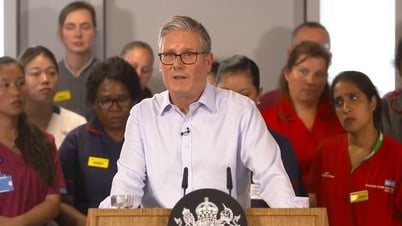

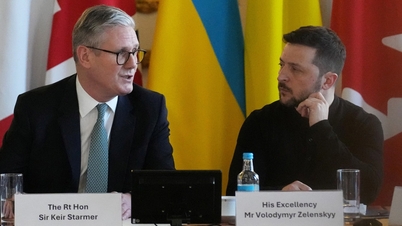

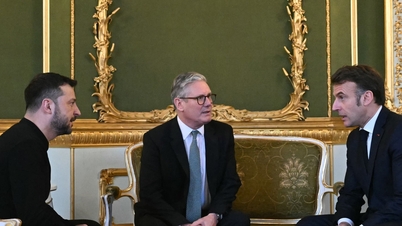


























































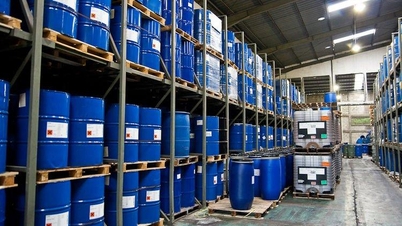











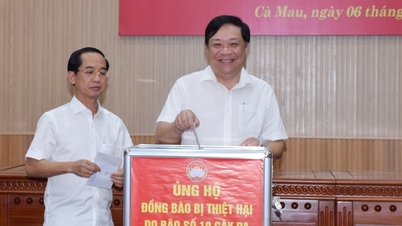


















Comment (0)